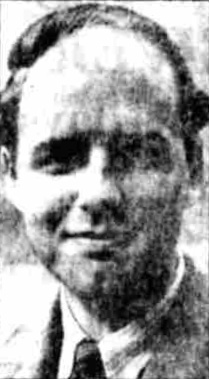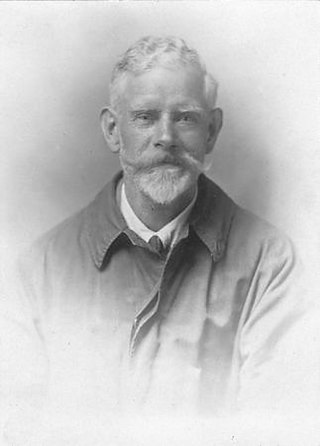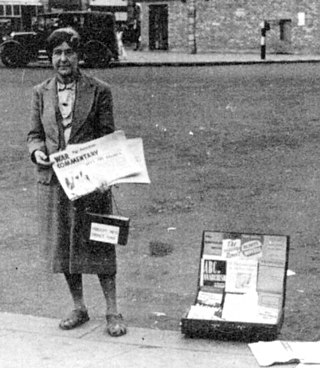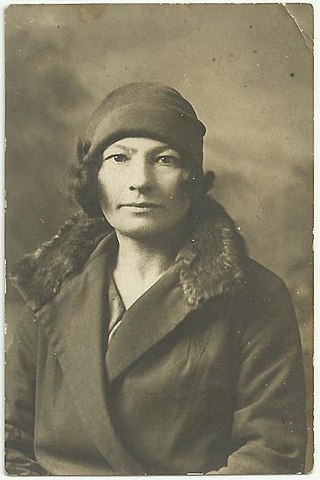Freedom is a London-based anarchist website and biannual journal published by Freedom Press which was formerly either a monthly, a fortnightly or a weekly newspaper.

Freedom Press is an anarchist publishing house and bookseller in Whitechapel, London, United Kingdom, founded in 1886.

Errico Malatesta was an Italian anarchist propagandist and revolutionary socialist. He edited several radical newspapers and spent much of his life exiled and imprisoned, having been jailed and expelled from Italy, Britain, France, and Switzerland. Originally a supporter of insurrectionary propaganda by deed, Malatesta later advocated for syndicalism. His exiles included five years in Europe and 12 years in Argentina. Malatesta participated in actions including an 1895 Spanish revolt and a Belgian general strike. He toured the United States, giving lectures and founding the influential anarchist journal La Questione Sociale. After World War I, he returned to Italy where his Umanità Nova had some popularity before its closure under the rise of Mussolini.

Albert Isidore Meltzer was an English anarcho-communist activist and writer.
Donald Rooum was an English anarchist cartoonist and writer. He had an extremely long association with the Freedom newspaper in London, to which he regularly submitted his 'Wildcat' comic strips.

Vernon Richards was an Anglo-Italian anarchist, editor, author, engineer, photographer, and companion of Marie-Louise Berneri.

Marie Louise Berneri was an anarchist activist and author. Born in Italy, she spent much of her life in Spain, France, and England. She was involved with the short-lived publication, Revision, with Luis Mercier Vega and was a member of the group that edited Revolt, War Commentary, and the newspaper Freedom. She was a continuous contributor to Spain and the World. She also wrote a survey of utopias, Journey Through Utopia, first published in 1950 and re-issued in 2020. Neither East Nor West is a selection of her writings (1952).
The Manifesto of the Sixteen, or Proclamation of the Sixteen, was a document drafted in 1916 by eminent anarchists Peter Kropotkin and Jean Grave which advocated an Allied victory over Germany and the Central Powers during the First World War. At the outbreak of the war, Kropotkin and other anarchist supporters of the Allied cause advocated their position in the pages of the Freedom newspaper, provoking sharply critical responses. As the war continued, anarchists across Europe campaigned in anti-war movements and wrote denunciations of the war in pamphlets and statements, including one February 1916 statement signed by prominent anarchists such as Emma Goldman and Rudolf Rocker.

Philip Richard Sansom was a British anarchist writer and activist.
Egoist anarchism or anarcho-egoism, often shortened as simply egoism, is a school of anarchist thought that originated in the philosophy of Max Stirner, a 19th-century philosopher whose "name appears with familiar regularity in historically orientated surveys of anarchist thought as one of the earliest and best known exponents of individualist anarchism". Egoist anarchism places the individual at the forefront, crafting ethical standards and actions based on this premise. It advocates personal liberation and rejects subordination, emphasizing the absolute priority of self-interest.

Thomas Henry Keell was an English compositor who edited the anarchist periodical Freedom. In 1907, he attended the International Anarchist Congress of Amsterdam, where he was hailed by Emma Goldman as "one of our most devoted workers on the London Freedom". Keell also contributed to Voice of Labour for many years and was an outspoken opponent of the First World War. He was arrested with his companion Lilian Wolfe during a 1916 raid on the Freedom offices; they were imprisoned and later lived together in Whiteway Colony in Gloucestershire from the 1920s until Keell's death in 1938.

Lilian Gertrude Woolf, better known as Lilian Wolfe, was an English anarchist, pacifist and feminist. She was for most of her life a member of the Freedom Press publishing collective.

Woolf Wess was a Jewish immigrant to the United Kingdom who from 1884 spent much of his time community organising in London. An anarchist, trade unionist, and a newspaper editor, Wess was active in the Socialist League and is notable for his involvement with the International Working Men's Educational Club, and Freedom Press.
George Cores was an anarchist and militant trade unionist. Raised in dire poverty in London's East End, George's illiterate Hanover-born father, John Henry Christopher Kors laboured under fearful conditions in a local sugar refinery until he died, aged just 38, of "lung and heart disease", before George's first birthday. Cores was close to Freedom, but held long protracted disputes with some of the other members particularly Thomas Keell.
Jack Robinson was an anarchist activist and editor of the Freedom paper. A conscientious objector, during the war he worked in an epileptic colony because he was a nurse by training. Linked to this he also took part in a medical experiment living on a diet which caused scurvy, but in fact he earned a good part of his living as a book trader. And his purchase of the tenancy linked to Albert Meltzer’s Wooden Shoe Press was the premise of the long dispute between Meltzer and Vernon Richards.

Alfred Marsh was an anarchist-communist and long-time editor and stalwart of the newspaper Freedom.

John Christopher Hewetson was a British anarchist physician, writer and newspaper editor. During the Second World War he was an editor of the anarchist newspaper War Commentary, which saw him imprisoned on three occasions. From the 1940s onwards he was active in advocating for freely available contraception and abortions.

War Commentary was a British World War II era anti-militarist anti-war anarchist newspaper published fortnightly in London by Freedom Press from 1939 to 1945. The paper was launched as a successor to Revolt! and Spain and the World and was opposed to World War II along anti-capitalist and anti-state lines.
Tom Brown (1900–1974) was a British anarcho-syndicalist trade unionist, anti-fascist, engineer and writer. Brown contributed articles to papers including War Commentary, Freedom, and Direct Action alongside authoring numerous pamphlets. Brown was known for his compelling public speaking and ability to communicate effectively in everyday terms. He placed a strong emphasis on federated local groups rather than centralism, and on workplace-based revolutionary trade unionism.

Leah Feldman, also known as Leah Downes, was an Odessa-born anarchist garment worker who for most of her adult life was based in London, England. Feldman was active in the anarchist movement for almost 80 years, and towards the end of her life she acted as a last living link in the British anarchist movement to the Russian revolution, the Revolutionary Insurgent Army of Ukraine, and the pre-WWI Jewish anarchist movement in the East End of London.













